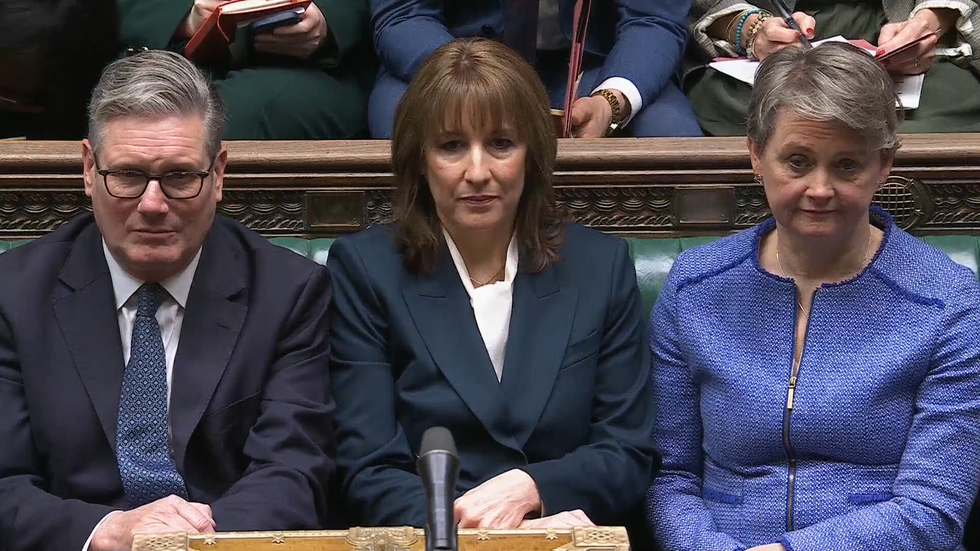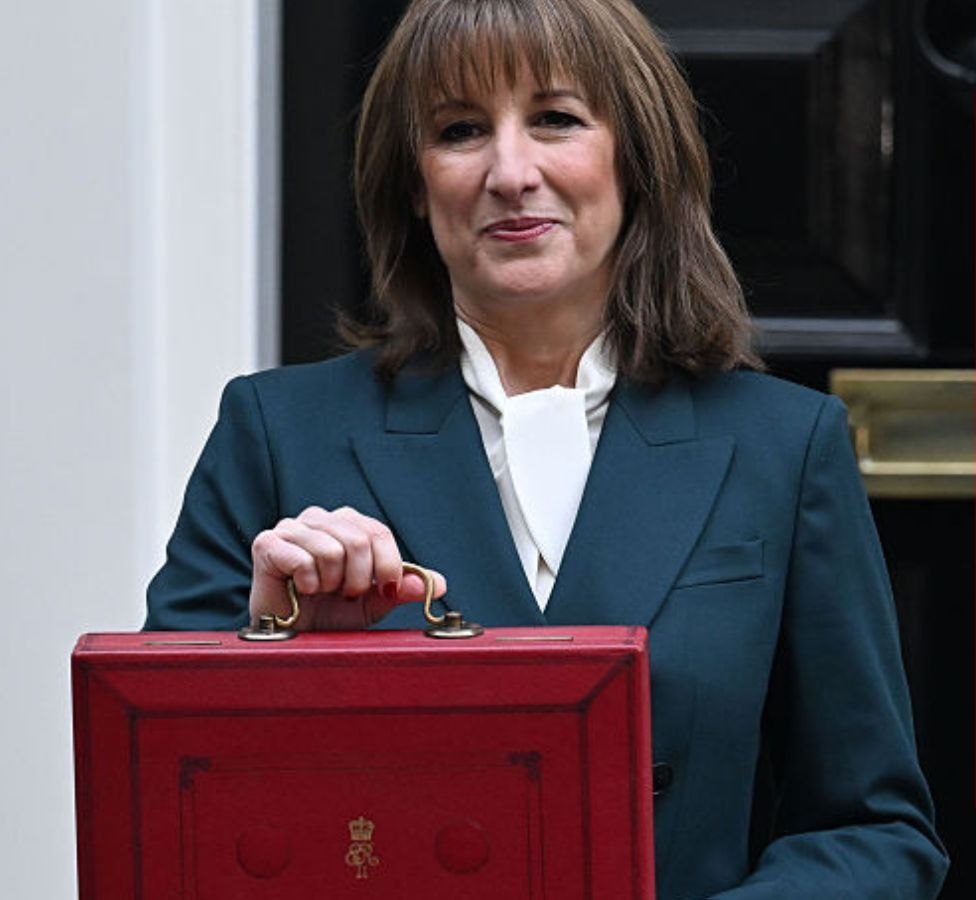Business split on Rachel Reeves's 'patchwork' Budget as tax 'liabilities increase' while HMRC relief 'widens'

WATCH: Pub owner says he is 'barely breaking even' as he despairs at Rachel Reeves's Budget |
GB News

Firms warn of higher liabilities while welcoming major expansion of share incentive schemes
Don't Miss
Most Read
Chancellor Rachel Reeves' Autumn Budget has triggered sharply divided reactions among British businesses, with companies facing a combination of rising costs and expanded incentives aimed at supporting growth.
Her financial statement drew criticism from industry leaders who warned of higher employer liabilities and increasing administrative pressures.
At the same time, the Budget received praise for major changes to share incentive schemes designed to help growing firms compete for skilled workers.
Business groups expressed concern about higher National Insurance Contributions (NIC) and tighter pension rules, while welcoming reforms to the Enterprise Management Incentive scheme that will widen access for ambitious companies.
TRENDING
Stories
Videos
Your Say
Analysts said the contrasting responses reflected the broader tension in the Government's economic strategy, as ministers attempt to strengthen public finances while encouraging private sector expansion.
Employer organisations were particularly concerned about the financial burden presented by Wednesday's measures.
The Association of Professional Staffing Companies said firms already managing difficult economic conditions now face further pressure from higher National Living Wage rates and rising business rates.
One of the most contentious changes involves pension contribution rules.
National Insurance exemptions on salary sacrifice arrangements will fall from £60,000 to £2,000, meaning employers will pay more when staff earnings exceed the new threshold.
Samantha Hurley, managing director at APSCo UK, said: "Employer liabilities will increase with higher National Living Wage rates, tightened salary sacrifice rules for pension contributions that slash NIC exemptions from £60,000 to £2,000, meaning increased NICs and rising business rates."

The Autumn Budget has split business opinion, mixing higher costs with new growth incentives
|GETTY
The Budget process itself has also drawn criticism.John Dickie, chief executive of BusinessLDN, said extended speculation before the Chancellor's announcement had weighed on business decision-making.
"The lengthy run up has had a chilling effect on investment and hiring, while digesting the impact of this complex package of measures will also take time — and this in itself is a cost to business," Mr Dickie said.
Tax specialists echoed concerns about the cumulative effect of the measures.
Lucy Mangan, head of tax at Menzies LLP, said the reforms created "a patchwork" rather than delivering the stability many companies had anticipated.
She said: "This Budget was billed as a move towards stability, yet it introduces another wave of costs and complexities with no real reform."
LATEST DEVELOPMENTS

Businesses owners have slammed the complexity of the Budget
| GB NEWSAmid the criticism, the expansion of the Enterprise Management Incentive (EMI) scheme has been widely welcomed.
The changes, which take effect from April 2026, will allow companies with up to 500 employees to participate, doubling the current threshold of 250 staff.
The reforms go further by increasing the gross assets limit from £30million to £120million.
Share incentive specialist Lynette Jacobs of Pinsent Masons said: "The quadrupling of the gross assets limit for EMI will be a real gamechanger, widening the scope of this highly flexible tax-advantaged share plan from a plan only for 'start-ups' to one which extends also to 'scale-ups'."
The maximum share value will rise from £3million to £6million, and the exercise window for options will extend from 10 to 15 years.
These changes are expected to help companies that have expanded beyond their original eligibility criteria remain competitive in attracting and retaining staff.

Businesses have had a mixed reaction to the Budget
| GETTY / BLICK ROTHENBERGMs Jacobs said the reforms would allow firms previously excluded due to asset growth or employee numbers to return to the scheme, helping them "align newer employees with those who joined the company at the start of its life".
Despite the positive reaction to the EMI changes, business leaders remain cautious about the wider implications of the Budget.
They said the reforms introduced useful incentives, but also arrived alongside measures that risk increasing operational costs and limiting long-term competitiveness.
She said the package "should be a real boost to the economy," while Ms Mangan said the United Kingdom could face challenges "without broader reforms supporting productivity and competitiveness".
More From GB News










